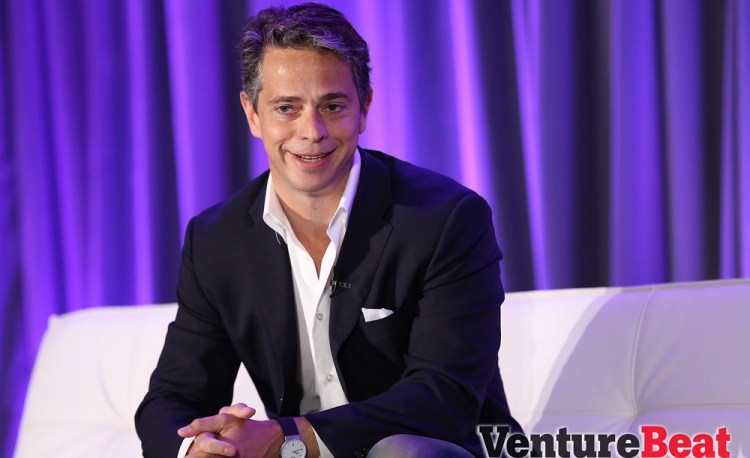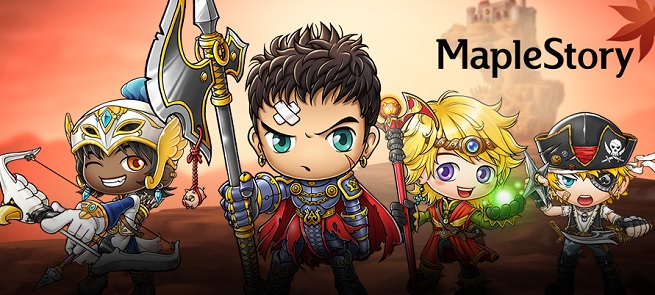GamesBeat: You also launched Dirty Bomb. What sort of comments do you have on that so far?
Mahoney: We’re in beta. In the games business you can judge yourself based on results, but it’s way too early to tell on a hardcore PC first-person shooter game, how that’s going to do over time. I’m playing it. A lot of people within Nexon have been playing it and enjoying it. It feels like the community likes it. We’ve been getting good feedback on what we can do to improve it. We’ve been able to work with our partner really well on making the game work for the online gaming and free-to-play community. So far, so good.
We want to judge ourselves based on the quality of the gameplay. The performance of the game will take care of itself if we do a good job at that. Again, I’m enjoying the game. I plan to be playing it for a long time. But it is early on.
GamesBeat: It looks like you’re in a stage where things are coming out of the pipeline.
Mahoney: We’re very much on a metronome of new product introductions. Our pipeline consists of both games that we’re creating internally—that’s as strong as our pipeline has ever been for internally created games. We’ve also done a lot of external partnering over the last year and a half. You mentioned Dirty Bomb and DomiNations. We have the Shiver games coming up, John Schappert’s studio, and farther out we’ve partnered with Square Enix for Final Fantasy XI mobile. We partnered with Warner and Lego for an upcoming Lego game down the road.
Internally developed, we have Ghost in the Shell coming up, which I’m personally excited about. We have Maple Story 2 coming up. We have Durango on mobile. All of those games I’m very excited about. The game quality is very good already. Plus have basically 20 games in the mobile pipeline. We’ve whittled that down and really tried to focus on quality games. We feel like we’re going at a pretty good clip right now. The development teams are happy with it and I’m happy with the partnerships we’ve created so far.
GamesBeat: What are some things that have changed? Watching the U.S. part of Nexon, I’ve seen a lot of turnover. It feels like you guys are still trying to get a footing for the management team. How would you view some of the internal changes coming and how that’s showing to us on the outside?
Mahoney: They’re all part of the same time. Last year at this time, when I and the rest of the new management team came on board, we were focused on gameplay quality, quality of execution in live games, and on bringing world class marketing around the world. If you look at our IR documents for Q1 and Q4 of last year, where we executed well on live game operations and on marketing, our regions did quite well.
Everything we’ve been doing has been around focusing on those two things. That’s hard to do in practice. We just need to keep on focusing on that relentlessly.
GamesBeat: You mentioned China. How much activity do you have in China, as well as Korea, Japan, and the U.S.? What’s the relative emphasis?
Mahoney: Our biggest three regions in the most recent quarter were China, Korea, and Japan in that order. Then North America and Europe. China had another good quarter. We were happy with that. Dungeon Fighter continues to perform well in China. We’ve also talked externally about our intention to bring Dungeon Fighter Mobile to the Chinese market with one of our partners, Tencent. We continue to feel good about the Chinese market.
Korea has been firing on all cylinders. We have outstanding execution in terms of live game operations and marketing in that region, not to mention a very strong pipeline. Our mobile business is quite a bit bigger, more than three times as big as it was a year ago. It’s scaling quickly. We’ve had a renaissance in our Korean business. As you know, the Korean market for online and mobile games is hyper-competitive. We feel good about our performance there.
Japan has been more of a struggle recently. Our numbers are down there year over year. We’re focused on making that better. It again shows how it’s easy to talk about all this and very difficult in execution. We think that market is somewhat like our U.S. market a year ago and Korea two years ago, where we can really turn it around through strong execution. We can turn it into a positive business again.
North America has been coming up. We’re happy with how the team’s performed since mid-year last year. Several of our existing games have grown very nicely year over year. We’re introducing several new games. That was a matter of fixing the operations engine, making sure that it’s running well, and then we can feed it with a pipeline of new games coming up. North America is a big opportunity for us. It remains an area of continued focus. Our pipeline is in terrific shape with the leadership of the new development team we put in place a year ago.
GamesBeat: What do you feel are some big forces, larger than Nexon, that are affecting your business? It seems like China and its rapid growth and expansion in mobile, the embracing of brands, all those things seem to be affecting every game company.
Mahoney: I was interested in what John Riccitiello said at your summit. I was thinking back to Nexon’s IPO, which was in the end of 2011. At the time, I remember talking to fund managers, who were very sophisticated, around the world. The viewpoint at that time, with what seemed like a lot of justification, was, “Everybody knows the games business is transitioning from console to Facebook games.” And I’d think, “Wait a minute. Everybody doesn’t know that.” I can see why you’d think that, but that’s not necessarily a trend. What was clear at that point was that revenue was going up on Facebook and the console cycle was down. But that doesn’t mean people were stopping playing console games to play casual games on top of Facebook.
I was thinking about this because of a conversation we had internally. The constant of all this goes back to a question of, “Are there fun games to play? Are game developers really focusing on creating fun online games, games that are built to last?” Everything else, in my view, is secondary to that. It may not seem sexy to say that, or say that’s the new thing, because it’s been a constant throughout the history of the industry. But it seems to me that whenever the game industry has gotten away from that and thought the trend was about something else, or that the big topic in the industry was about something else, then the industry has gotten itself in trouble.
The industry has gone through generations of thinking about graphical fidelity as the primary thing, or Facebook games as the primary thing, or monetization strategies as the primary thing. What really matters is game quality. If you think about the game companies that we all admire, they’ve been companies that have stayed close to that path and not worried too much about what the rest of the crowd is thinking about.
We’re going to be successful company if we stay close to that vision. We will not be as successful if we stray from that vision too much.





